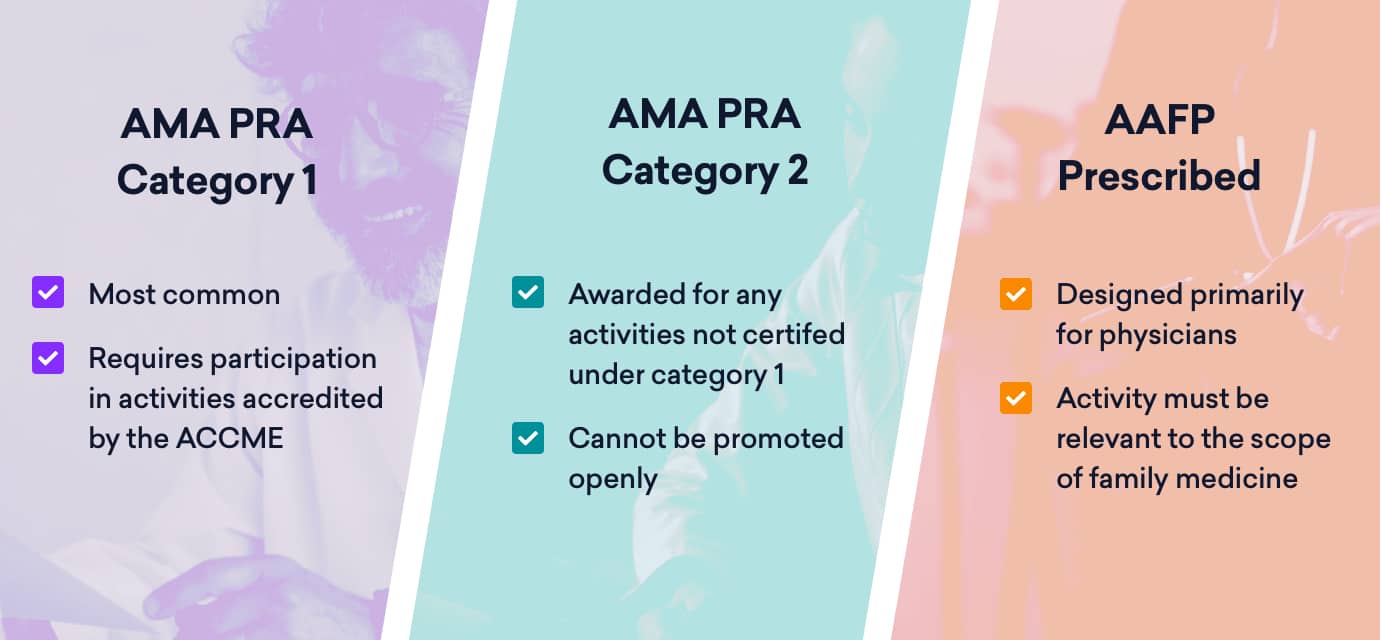Obtaining Continuing Medical Education is the Responsibility of the

Part of being an active, practicing physician is a commitment to continuing medical education. Many states in the U.S. require a yearly quota of CME credits to maintain an active medical license.
Managing and obtaining CME credits can feel overwhelming to many doctors. To support you in this essential task, we've created an online overview detailing what you need to know about CME credits and how to obtain them.
What is CME?
Firstly, what does CME stand for and what is its purpose? The CME medical abbreviation stands for Continuing Medical Education. This type of education aims to maintain, develop, and advance the knowledge and skill required to guarantee a high level of professional performance among physicians.
Physicians must complete various modules relating to medical science, clinical medicine, and providing healthcare to the public.
What is a CME Credit? Who Needs CME Credits?
Medicine is a dynamic, ever-changing field. The CME meaning and intention is to ensure practitioners stay current on the latest advances in medicine. If your job within the medical field requires a license or certification to practice, you will most likely need to complete CME education annually to renew your permit to practice.
Doctors, nurses, and other allied health professionals all require CME credits annually. This is a non-negotiable, ongoing requirement throughout a medical career. Depending on your license or certification, the number of credits you need will differ.
A major responsibility for anyone who is required to obtain these credits is to ensure they do so in a timely manner, and do not let their license or certification expire.
Contact your professional licensing board to find out the specifics of how many credits you need and how to get them. The requirements are not uniform across every license and state.

Types of CME Credits
Now that you know the answer to "What are CME credits?" let's review the types of CME credits available. It's important to note that not all types of CME credit are the same. You need to check which credits are accepted by your licensing board.
Here's a short guide to give you an overview of the various types of credit and how to qualify for them.
AMA PRA Category 1 Credit
American Medical Association (AMA) Category 1 credits are the most common type of credit available for US physicians. You need to participate in activities accredited by the Accreditation Council for Continuing Medical Education (ACCME).
You will need to participate in various sponsored events and complete all the activities. Confirm the "AMA PRA Category 1 Credit™" designation statement on any promotional materials supplied by the organizer, where the maximum number of credits will also be specified. You can confirm the event is certified on the Accreditation Council for Continuing Medical Education (ACCME) website.
AMA PRA Category 2 Credit
The category 2 CME credit is awarded for any activities that have not been certified under the category 1 credit system. Physicians must claim and self-document the activity.
Activities within this category cannot be promotional and must be fully compliant with AMA ethical opinions.
Unlike category 1 credits, category 2 cannot be promoted openly. Instead, physicians must document the description of the activity and the number of credits they are attempting to claim.
A single CME credit amounts to 60 minutes of participation time, rounded to the closest quarter-hour.
AAFP Prescribed Credits
These credits are designed primarily for physicians. The content of the activity will relate to patient care and the delivery of that care, as well as some nonclinical subjects. Some examples of activities that provide these credits include:
- Life support courses
- Point-of-care learning
- Scholarly sessions
- Health professions learners education
There are also elective credits, but you need to make sure that your state board accepts these activities as credits.

How to earn CME credit
You can tackle CME education in a variety of ways. The number of credits required, and the number of credits awarded, largely depends on the activity, your specialization, and the state where you hold a license to practice.
Some examples of how to acquire credits include:
- Classes
- Seminars
- Lectures
- Workshops
- Conferences
- Webinars
There are limits on how many credits you can earn from specific activities. For example, you may only earn 60 credits from teaching per three-year cycle.
Now, you can earn CME credits online. Sermo is constantly helping physicians with their continuing medical education requirements.
Sermo has formed several partnerships with leading education and advocacy bodies to provide access to CME resources directly on the platform. For example, Sermo partners with RealCME to offer CME courses to members on a wide range of topics, including What's New in Eczema Management, Optimizing Patient Outcomes in Diabetic Retinopathy and Optimizing the Management of Type 2 Diabetes Mellitus. They are free for members.
With so many ways to address continuing medical education requirements, physicians have a broad selection of options for obtaining the credits they need.
Continuing education
CME is an essential part of enjoying a long medical career. By committing yourself to education, you are not only ticking boxes but constantly advancing your medical knowledge.
The world's largest dedicated social network for doctors, Sermo, offers countless resources to help you earn CME credits online.
To make earning CME simple, sign up for a Sermo account now.
shieldswitace1970.blogspot.com
Source: https://www.sermo.com/resources/what-is-continuing-medical-education/
0 Response to "Obtaining Continuing Medical Education is the Responsibility of the"
Post a Comment